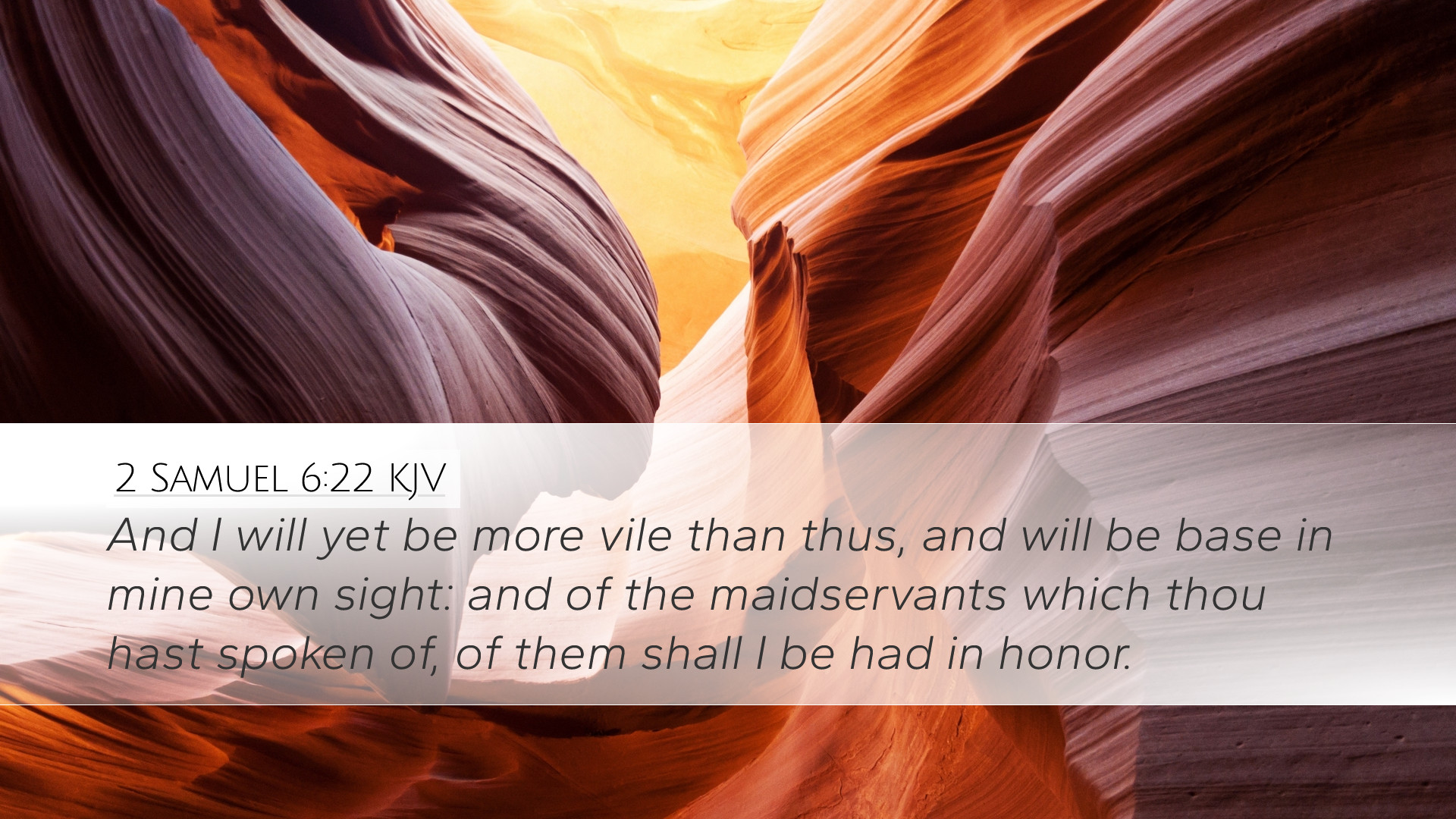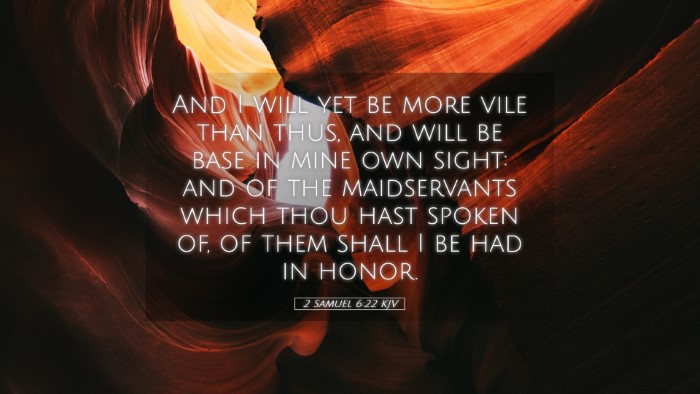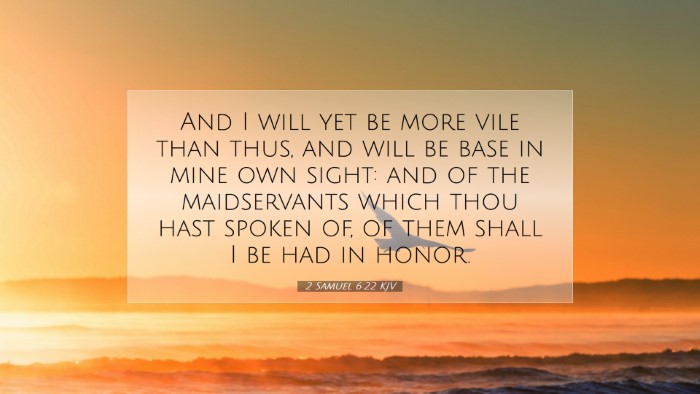Commentary on 2 Samuel 6:22
Verse: "And I will be more vile than thus, and will be base in mine own sight: and of the maidservants which thou hast spoken of, of them shall I be had in honour."
Introduction
This verse captures a pivotal moment in the life of King David as he re-enters the city of Jerusalem with the Ark of the Covenant. The event not only marks a significant religious restoration for Israel but also exposes personal dynamics of humility, worship, and honor among God’s people. In examining 2 Samuel 6:22, we draw insights from celebrated public domain commentaries that provide depth to its theological implications.
Contextual Background
In the broader context of 2 Samuel chapter 6, David is seen as exuberantly celebrating the return of the Ark. This was a moment of profound joy, and also a moment of controversy when his wife, Michal, expressed disdain for his unrestrained worship. This verse comes in response to her criticism, showcasing David's resolute commitment to worship regardless of societal expectations.
Thematic Insights
- Worship and Humility: David’s declaration about being "more vile" emphasizes a contrast between societal norms and spiritual authenticity. Matthew Henry notes that David’s emphasis indicates his willingness to lower himself for the sake of sincere worship rather than elevate himself in the eyes of men.
- Societal Expectations vs. Divine Approval: Albert Barnes elaborates that David's actions challenge established decorum. While Michal represents the worldly view of dignity, David reflects the heart of a true worshiper who prioritizes divine approval over human criticism.
- Honor Among the Humble: Clarke points out that even though David perceived himself as "base" and undignified, he would garner honor among those he viewed as maidservants. This paradox underlines the biblical principle that God often raises the humble and the lowly to places of honor.
Detailed Commentary
David’s Response to Criticism: David addresses Michal's contempt with a response rooted in humility. His pledge to be "more vile" suggests an embrace of an unconventional expression of joy in worship that would not shy away from public visibility. Henry provides insight into David’s attitude here as one that shows he places more value on the opinions of those who worship God sincerely than the opinions of those who are merely concerned with decorum.
Understanding 'Vile' in Worship: The term "vile" as used by David merits careful exploration. Clarke explains that in the Hebrew context, "vile" refers to something that is of little or no value in the sight of man but is precious in God’s eyes. This aligns with the New Testament theme where God chooses the foolish things of the world to confound the wise (1 Corinthians 1:27).
The Role of Maidservants: The mention of maidservants indicates that those who appear lowly in status can experience profound honor from God and an intimate relationship with Him. Barnes elucidates that David recognizes the spiritual insight and worship of those who may not hold high positions. Thus, God’s elevation of the humble is not a new theme but woven throughout the biblical narrative.
David's Joy in Obedience: David’s act of dancing before the Lord symbolizes complete surrender and joy in the Presence of God. His willingness to be perceived as foolish enhances the understanding of what true worship entails. Clarke emphasizes the transformative nature of coming before God with unrestrained joy.
Theological Implications
This passage invites pastors, theologians, and students of Scripture to reevaluate the role of cultural norms in worship. It reinforces that divine connection is often found outside the boundaries of societal respectability. Biblical worship transcends traditional forms and allows for a heart-centered approach that is foundational to understanding God’s character and our responses to Him.
Application for Today
- Leading in Worship: Leaders should create an environment where genuine expressions of worship are encouraged, even if they challenge societal expectations.
- Valuing the Sincere: Recognize and honor those who may be humble or lowly but demonstrate a genuine love for God in their worship and service.
- Personal Reflection: Evaluate personal worship practices. Are there ways to express love and reverence for God that may appear 'vile' in the eyes of the world but are true to the heart’s intent?
Conclusion
2 Samuel 6:22 serves as a profound reminder of the contrast between human pride and divine humility. It challenges contemporary believers to align their worship practices with biblical principles that prioritize authenticity, joy, and a heart fully surrendered to God. The insights from Matthew Henry, Albert Barnes, and Adam Clarke enrich this understanding, affirming that true worship flows from a heart willing to embrace vulnerability for the sake of honoring the Lord.


